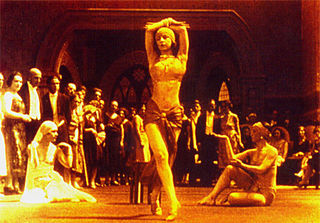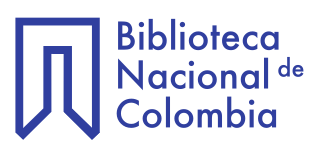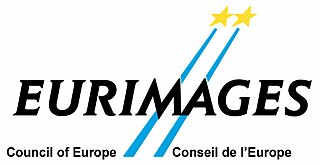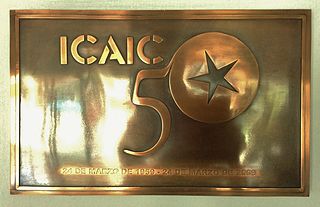Related Research Articles
A motion picture content rating system is an organization designated to classify films based on their suitability for audiences due to their treatment of issues such as sex, violence, or substance abuse; their use of profanity; or other matters typically deemed unsuitable for children or adolescents. Most countries have some form of rating system that issues determinations variously known as certifications, classifications, certificates, or ratings. Age recommendations, of either an advisory or restrictive capacity, are often applied in lieu of censorship; in some jurisdictions movie theaters may have a legal obligation to enforce restrictive ratings.

Cinema of Colombia refers to the film industry based in Colombia. Colombian cinema began in 1897 and has included silent films, animated films and internationally acclaimed films. Government support included an effort in the 1970s to develop the state-owned Cinematographic Development Company which helped produce some films yet struggled to maintain itself financially viable. FOCINE became defunct in 1993. In 1997 the Colombian congress approved Law 397 of Article 46 or the General Law of Culture with the purpose of supporting the development of the Colombian film industry by creating a film promotion mixed fund called Corporación PROIMAGENES en Movimiento. In 2003 Congress also approved the Law of Cinema which helped to restart the cinematographic industry in Colombia.
Cultural exception is a political concept introduced by France in General Agreement on Tariffs and Trade (GATT) negotiations in 1993 to treat culture differently from other commercial products. In other words, its purpose is to consider cultural goods and services as exceptions in international treaties and agreements especially with the World Trade Organization (WTO). Its goals are to point out that States are sovereign as far as limitation of culture free trade is concerned in order to protect and promote their artists and other elements of their culture. Concretely, it can be seen through protectionist measures limiting the diffusion of foreign artistic work (quotas) or through subsidies distributed according to the country's cultural policy.

The National Library of Colombia is a national library located in Bogota, Colombia. The library is a dependency of the Colombian Ministry of Culture.

Active since 1989, Eurimages was established as a cultural support fund of the Council of Europe. Eurimages promotes independent filmmaking by providing financial support to feature-length fiction, animation and documentary films. In doing so, it encourages co-operation between professionals established in different countries. Eurimages is located in Strasbourg, France. The Eurimages offices are in the Agora building of the Council of Europe.
Spanish copyright law governs copyright, that is the rights of authors of literary, artistic or scientific works, in Spain. It was first instituted by the Law of 10 January 1879, and, in its origins, was influenced by French copyright law and by the movement led by Victor Hugo for the international protection of literary and artistic works. As of 2006, the principal dispositions are contained in Book One of the Intellectual Property Law of 11 November 1987 as modified. A consolidated version of this law was approved by Royal Legislative Decree 1/1996 of 12 April 1996: unless otherwise stated, all references are to this law.
The Council of Europe Film Award (FACE) is presented at the Istanbul International Film Festival by the Council of Europe to the director whose entry to the festival raises public awareness and interest in human rights issues and promotes a better understanding of their significance.
Copyright law in Thailand governs the legally enforceable rights of creative and artistic works under the Copyright Act BE 2537 (1994). Copyright is automatically protected for 50 years after the death of a known author or 50 years after publication in the case of an unknown author. It does not need registration; however, it can be filed with the Department of Intellectual property (DIP). Disputes are first heard in the Intellectual Property and International Trade Court.

Fundación Villa del Cine is a government-funded Venezuelan film and TV production house that was inaugurated on 3 June 2006 by Venezuelan President Hugo Chávez in the city of Guarenas, near the capital, Caracas.

The cinema of Venezuela is the production and industry of filmmaking in Venezuela. Venezuelan cinema has been characterised from its outset as propaganda, partially state-controlled and state-funded, commercial cinema. The nation has seen a variety of successful films, which have reaped several international awards. Still, in terms of quality, it is said that though "we can point to specific people who have made great films in Venezuela [and] a couple of great moments in the history of Venezuelan cinema, [...] those have been exceptions". In the 21st century, Venezuelan cinema has seen more independence from the government, but has still been described as recently as 2017 to be at least "influenced" by the state.
The Right to Make Transmittable is one of several rights granted to the creators of creative works by Japanese copyright law. The law defines copyright not as a single comprehensive right but as a bundle of various rights including right of reproduction, right of performance, right of screen presentation and right of public transmission.

The Instituto Cubano del Arte e Industria Cinematográficos was established by the Cuban government in March 1959 after the Cuban Revolution. Its prominent members are Tomás Gutiérrez Alea, Julio García Espinosa, Alfredo Guevara and Santiago Álvarez.
The Centro de Capacitación Cinematográfica (CCC) is a film school belonging to Mexico's Secretariat of Culture. It was founded in 1975 with the aim of providing technical and artistic training for those entering the film industry. The CCC is part of the International Association of Film and Television Schools and since 2011 to the International Federation of Film Archives. Recognized as a cutting-edge school in film teaching, it received the Award for Academic Excellence at the Tel Aviv Film School Festival, in Israel, in 2005, and in 2006 the Golden Ariel for its 30 years of educational work and contribution to national cinema. It is one of Mexico's two major film schools, the other being the Centro Universitario de Estudios Cinematográficos at the National Autonomous University of Mexico.
Taxes in Bulgaria are collected on both state and local levels. The most important taxes are collected on state level, these taxes include income tax, social security, corporate taxes and value added tax. On the local level, property taxes as well as various fees are collected. All income earned in Bulgaria is taxed on a flat rate of 10%. Employment income earned in Bulgaria is also subject to various social security insurance contributions. In total the employee pays 12.9% and the employer contributes what corresponds to 17.9%. Corporate income tax is also a flat 10%. Value-Added Tax applies at a flat rate of 20% on virtually all goods and services. A lower rate of 9% applies on only hotel services.

Universidad del Cine is a private not-for-profit university located in the neighbourhood of San Telmo in Buenos Aires, Argentina. It was founded in 1991 by Manuel Antin, who currently serves as Rector. The school offers undergraduate, graduate and post graduate programmes focused in film and media arts.
The Centro Nacional Autónomo de Cinematografía (CNAC) is the governing body of the Venezuelan cinema created by the Venezuelan government in 1993. It is responsible for selecting the films which will represent Venezuela in international film awards like the Academy Awards and Goya Awards. It is headquartered in Los Ruices, Caracas.

Andreina Gómez is a Venezuelan filmmaker, ethnologist, and founder of Salinas Producciones C.A. Her documentaries feature cultural and ethnological themes discovered in her research, with her major work focusing on music. She is known for her work as a producer for Water Drums, an Ancestral Encounter which explored how African musical influences appear in Venezuelan music. As of 2015 she was in production for Teresita y El Piano, a documentary of the life of Teresa Carreño. Her productions have appeared in several international film festivals and academic institutions. In addition she works to promote cultural outreach through her films, both within Venezuela and internationally.

Polish Film Institute is a state legal entity established in 2005 to support the development of cinematography. The Institute operates on the basis of the Act of 30 June 2005 on cinematography, the Act of 9 November 2018 on financial support for audiovisual production and its statute.
The Mexican Film Institute is an agency of the Mexican federal government, under the auspices of the Secretariat of Culture, that supports the development of national film production and the film industry.
References
- Reglamento de la Ley de Cinematografía Nacional Retrieved 9 January 2017 (.gob.ve)
- Marco Jurídico del Sector Cinematográfico Retrieved 10 January 2017 (.gob.ve)
- "Medidas cautelares contra "El Inca" contradicen preceptos constitucionales". El Universal. 17 December 2016. Archived from the original on 16 January 2017. Retrieved 13 January 2017.
- "Proponen reformar ley de cinematografía para potenciar crecimiento del cine nacional". www.avn.info.ve. Retrieved 13 January 2017.